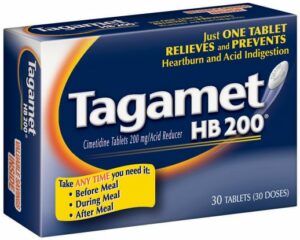Abstract:
OBJECTIVES.
Bicalutamide is a nonsteroidal competitive inhibitor of androgens at the androgen receptor. The level of blockade that can be achieved is dependent on the relative numbers of molecules of the agonist and the competitive antagonist around the receptor. Increasing the dose of a competitive inhibitor, therefore, should potentially increase the level of blockade, Bicalutamide has been investigated extensively at daily doses up to 150 mg, and there is evidence of increasing blockade at doses up to this point, as evidenced by increasing suppression of prostate-specific antigen (PSA) and also improvement in response rate, both subjective and objective. At doses of up to 150 mg, increases in plasma concentration of bicalutamide were approximately linear, and all doses were equally well tolerated. It was thought, therefore, that there was a case for investigating higher doses of bicalutamide to determine whether increased androgen blockade could be achieved with the use of bicalutamide as monotherapy.
METHODS.
A number of studies have now been carried out evaluating bicalutamide in daily doses of 200 mg, 300 mg, and 450 mg. The 200-mg dose has been evaluated as a primary treatment for advanced prostate cancer and also as a second-line treatment option for patients who have demonstrated a flutamide withdrawal response.
RESULTS.
In noncomparative trials, the decline in PSA value associated with daily doses of 200 mg bicalutamide was greater than that observed with daily doses of 150 mg, and there was also a slightly higher response rate. When 200 mg daily doses were used as therapy following failure of flutamide in combination with castration, and also following evidence of a flutamide withdrawal response, further responses were seen, perhaps suggesting the theory that in some prostate cancer cell mutations, bicalutamide acts as a pure antagonist rather than as a partial agonist. More recently, bicalutamide has been evaluated at higher doses: 20 patients have been exposed for periods up to 6 months at daily doses of 300 mg. This dose was well tolerated, and evidence of PSA suppression and responses were seen that were at least equivalent to those observed at lower doses. Pharmacokinetics evaluation has been carried out at this dose, and there is now evidence of nonlinearity of plasma concentrations, suggesting that further dose escalation is unlikely to confer major additional benefit over the 150- and 200-mg doses. To confirm the evidence of nonlinearity of plasma concentrations at doses > 200 mg, a randomization between 450 mg bicalutamide and medical castration is currently being carried out. Patients are still being recruited into this trial, but there has been no evidence of any change in the tolerability profile of bicalutamide at any dose > 150 mg.
CONCLUSIONS.
In summary, bicalutamide has shown increasing evidence of activity as a competitive blocker of the androgen receptor at daily doses of up to 200 mg. At daily doses > 200 mg, there is evidence of nonlinearity of plasma concentrations, and therefore further benefit is unlikely to be seen as a result of further escalating the dose of bicalutamide.
Author:
Blackledge GR;
Source:
Urology, 47:1A, 1996 Jan, 44-7, discussion 48-53
Address:
Zeneca Pharmaceuticals, Macclesfield, Cheshire, United Kingdom.
Language:
English
Unique Identifier:
96149766





